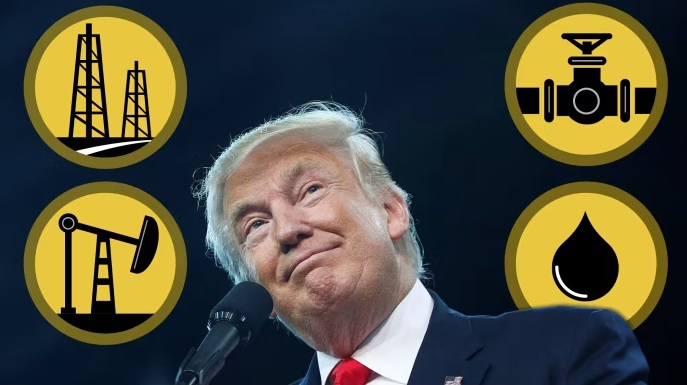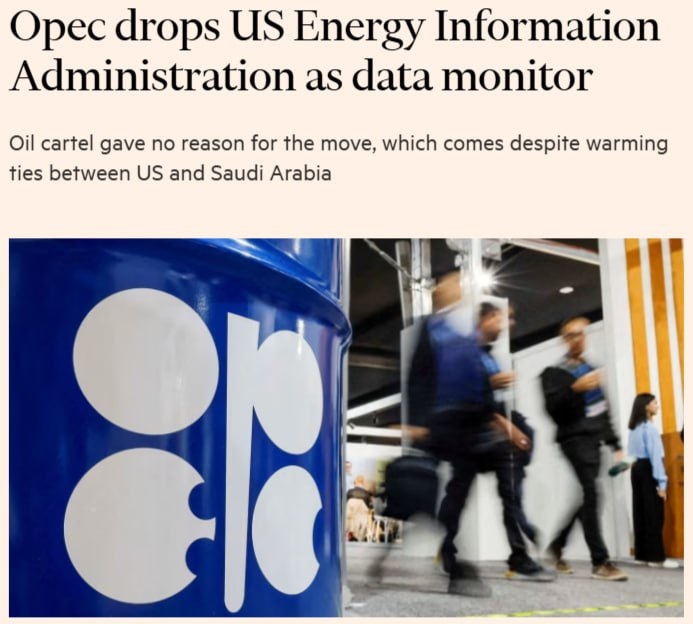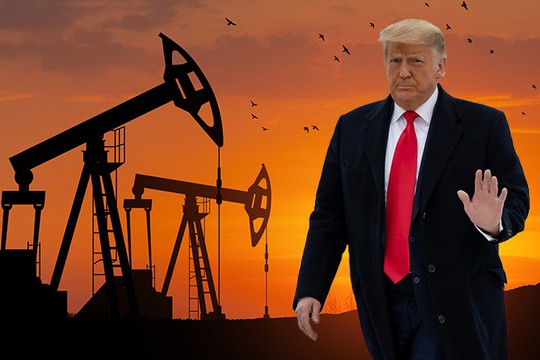Pic.: Arab Center Washington DC
President says lower prices will solve many of the country’s problems, but finds early resistance in the oil market. President Trump wants to boost oil drilling. His allies in the U.S. shale industry and Saudi Arabia are pushing back, writes ‘The Wall Street Jpurnal’.
Trump for months has encouraged the U.S. shale industry to “drill, baby drill,” but another American oil boom isn’t in the cards soon, no matter how many regulations are rolled back, according to oil executives. After many producers overdrilled themselves into bankruptcy during the shale boom’s heyday, the industry is now focused on keeping costs down and returning cash to investors.
Citing oil executives, the WSJ reported that, even if Trump moves to wipe away many regulations on the energy sector, an American oil boom is unlikely to transpire as companies focus on reining in costs and returning cash to shareholders.
People who advise Trump have also conceded that U.S. fracking businesses will not pump more, sources familiar with the matter told the WSJ. Trump's best chance to lower oil prices would be to persuade the Organization of the Petroleum Exporting Countries, and its de facto leader Saudi Arabia, to increase supply, the WSJ reported.
But Saudi Arabia in particular has let former U.S. officials know that it is not willing to expand global oil supplies, the WSJ report said, adding that this message has been passed on to Trump's team. A clash is looming between Trump and Saudi Arabia over oil prices, one of the former officials told the WSJ.
Last month, Trump, who is planning a visit to the kingdom in one of his first foreign trips since his return to the White House, suggested that he would ask Riyadh and other OPEC nations to help lower oil prices.
Trump has been keen to decrease energy costs in the hopes that it will dampen inflation in the U.S. and boost the case for the Federal Reserve to roll out more interest rate cuts, the WSJ said. It added that the trend could bolster Trump's negotiating position ahead of talks with leaders from key oil producers Russia and Iran.
Indeed, Trump's special envoy to Ukraine and Russia has suggested global producer should move to reduce oil prices down to $45 per barrel from their current level of around $73 a barrel. However, U.S. frackers and Saudi Arabia could be hit hard by such a decline, the WSJ reported.
OPEC also opposes Trump's oil price cuts.
 Pic.: ‘The Financial Times’
Pic.: ‘The Financial Times’
OPEC+ didn’t make any changes to its existing oil-production plans at a review meeting on Monday, even as President Donald Trump called on the group to lower crude prices, Bloomberg reports.
A panel of key members led by Saudi Arabia and Russia maintained plans to keep a lid on crude supplies for the rest of this quarter, and then gradually restore output in monthly stages from April, according to a statement. The coalition has been withholding barrels for more than two years to prevent a surplus, and has already delayed its production revival three times in a bid to shore up prices.
“Despite some doubts, market fundamentals remain strong, as indicators of economic growth recovery are showing in several regions,” the Energy Ministry of OPEC-member Algeria said in a statement. “We expect a greater recovery in demand for oil starting next April after a seasonal slowdown during the first three months of the year.”
Trump’s request for more oil “were partially touched upon, one way or another,” Russia’s Deputy Prime Minister Alexander Novak said in an interview with Rossiya 24 TV channel. “The issue is certainly on the agenda in terms of market analysis and how the agreement is working today.”
All the ministers at the Joint Ministerial Monitoring Committee meeting emphasized their commitment to the alliance’s efforts to balance the market, Novak said.
The JMMC meeting focused on member countries’ compliance with existing output cuts and compensation for past over-production, delegates said. It also changed the composition of the external sources OPEC+ uses to monitor members’ production, removing two of the existing seven — Rystad Energy AS and the US government’s Energy Information Administration — and replacing them with consultants Kpler, OilX and ESAI.

The meeting indicates that the Organization of Petroleum Exporting Countries and its allies are in no hurry to placate Trump, who twice last week urged the producers to lower the cost of fuel. The cartel remains wary of inundating global markets as demand falters in top consumer China, while alternative supplies across the Americas are booming.
read more in our Telegram-channel https://t.me/The_International_Affairs

 11:55 06.02.2025 •
11:55 06.02.2025 •























